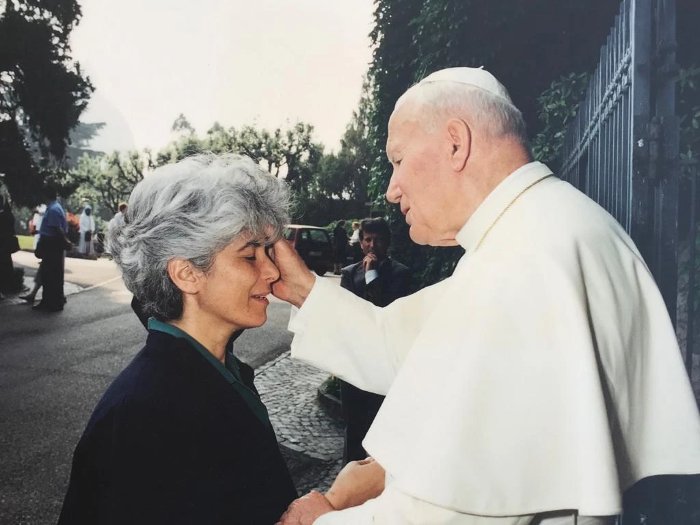
Pope John Paul II with the late Jocelyne Khoueiry, a Lebanese Maronite Catholic who died in 2020. Her life followed a spiritual trajectory which included combat as a soldier at age 21 in Lebanon’s civil war (1975-1990) to working tirelessly in her later years for the support of children and families
“When Mary returns, blessings return, violence vanishes”
“As John Paul II consecrated Russia to the Heart of Mary, my hope and wish is that the Middle East be consecrated to Mary, as recommended by the Synod for the Middle East. When Mary returns, blessings return, peaceful solutions arrive, violence vanishes and each person finds their rights.” —The late Jocelyne Khoueiry (1955-2020), a Maronite Catholic who became famous in 1976, when she was just 21, as a participant in the Lebanese Civil War (1975-1990). Later in life, she committed her life to the cause of peace and reconciliation in Lebanon. In 2014, she participated in the Third Extraordinary General Assembly of the Synod of Bishops and was appointed to the Pontifical Council for the Laity. She died in Jbeil, Lebanon, on July 31, 2020, at the age of 64 (link and link)
“Complete respect”
“The history of my country for centuries is precisely that of a small country struggling against all odds for the maintenance and strengthening of real freedom of thought and conscience. Innumerable persecuted minorities have found, throughout the ages, a most understanding haven in my country, so that the very basis of our existence is complete respect of differences of opinion and belief.” —Lebanese philosopher, diplomat and politician Charles Malik (1906-1987), speaking at a session of the UN in 1948 as Lebanon’s ambassador to the new international body. Malik, a Greek Orthodox Christian, participated in the drafting of the Universal Declaration of Human Rights (1948) and presided over the 13th General Assembly of the United Nations (1958). Malik was also noted as a theologian who successfully reached across confessional lines, appealing to his fellow Orthodox Christians, Roman Catholics and Evangelicals alike. He was the author of numerous commentaries on the Bible and on the writings of the early Church Fathers
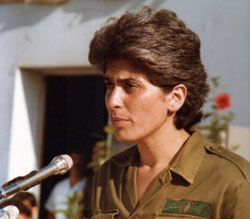
The late Jocelyne Khoueiry — who is cited in the first quote above — as a young woman in the 1970s, when she was a soldier in the Lebanese military during the country’s terrible civil war
Below, Jocelyne Khoueiry, as an older woman, when she committed her life to the cause of peace and reconciliation in Lebanon. She died in 2020 at the age of 64
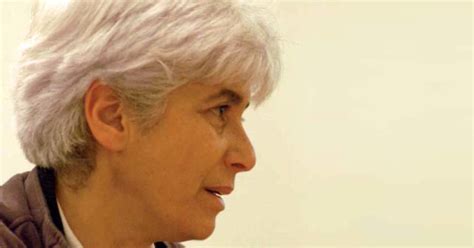
Lebanon Report 2022, #7, Friday, July 8: “Lebanon will rise again”
“Friends of Lebanon” Pilgrimage this September (click, here)
By Christopher Hart-Moynihan, Director, Friends of Lebanon Project (link)
The two quotes above sum up our hope for Lebanon: that, in the words of the late Maronite Catholic Jocelyne Khoueiry (1955-2020), “blessings return, peaceful solutions arrive, violence vanishes,” and, in the words of the late Greek Orthodox philosopher and diplomat, Charles Malik (1906-1987), that Lebanon maintain its very special identity in the world as a place of “complete respect of differences of opinion and belief.”
Because these hopes have been held by so many Lebanese for so long, and because these hopes are important for the entire Middle East — and also, frankly, because we were so profoundly disturbed and saddened by the destruction caused by the massive August 4, 2020 explosion in the harbor of Beirut, the full cause of which has still never been determined — we at Urbi et Orbi Communications (publisher of Inside the Vatican since 1993; by the way, to obtain a half-price gift subscription, click here) have formed a group called “Friends of Lebanon” to do what we can to bring help and hope to Lebanon, and through Lebanon, to the entire Middle East, and the whole world.
In this issue of our “Lebanon Report,” we briefly analyze the recent elections in Lebanon, then feature a lengthy interview with one of the promising young people in Lebanon, Dr. Georges Cherfane, 33, who is staying in the country in the hope that “Lebanon will rise again” despite its present difficulties. (continued below)
“Friends of Lebanon”
Pilgrimage to Lebanon
Urbi et Orbi Communications and Unitas: Friends of Lebanon are excited to announce that we will be going on pilgrimage to Lebanon this September 17-25.
During these days in Lebanon, we will spend time in Beirut meeting with religious leaders, including an expected meeting with Maronite Patriarch Bechara Boutros al-Rahi, 82.
We will also visit holy sites in and around Beirut, such as the monastery of St. Charbel, as well as spending three days in the astonishing Qadisha Valley, the “Holy Valley” of northern Lebanon and the heart of Lebanese monasticism (see image below).
This pilgrimage is open to all who have donated to the Friends of Lebanon initiative, but space is limited, so all who are interested are asked to contact our office for more information. Please call: +1.202-536-4555 or email [email protected].
We are looking forward to “building bridges” with these Christian communities, whose presence in the Middle East dates back to the time of Christ and the apostles.
Building closer ties to these “brothers and sisters” is one of the main goals of our Unitas: Friends of Lebanon initiative.
We believe that these closer ties can contribute to peace and stability in Lebanon, so that, in the words of Jocelyne Khoueiry, “blessings return, peaceful solutions arrive, violence vanishes.”
Again, for info on our pilgrimage, click here.
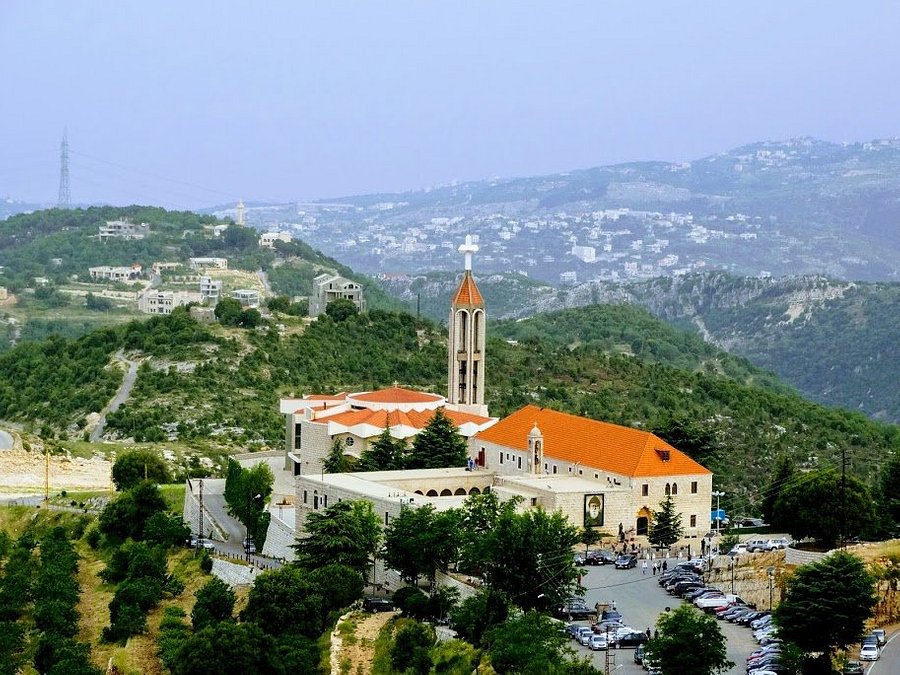
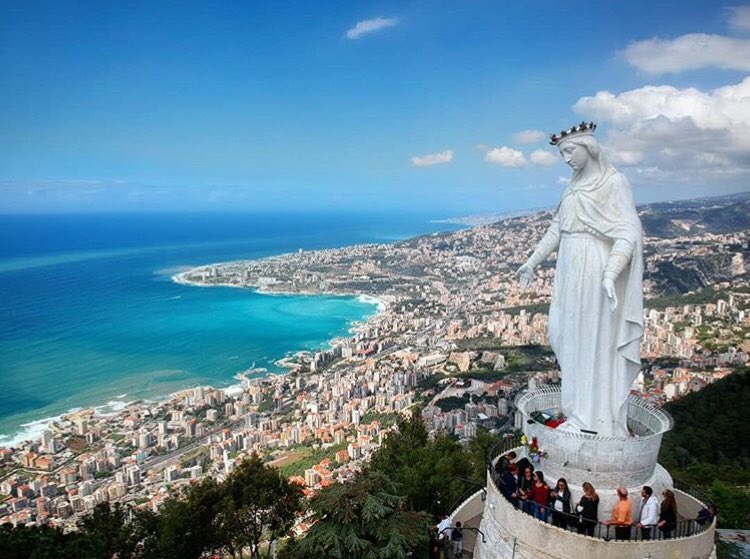
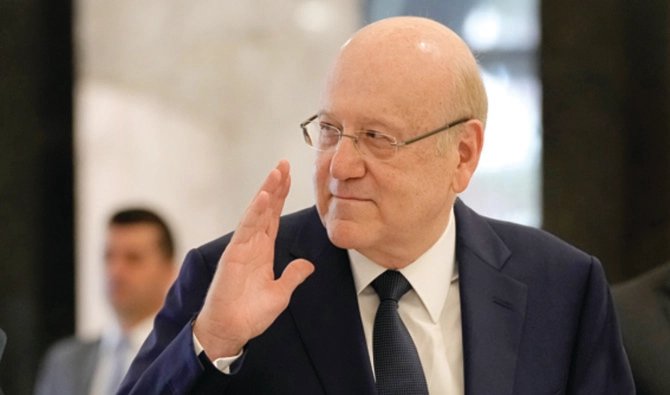
Lebanese PM-designate Najib Mikati arriving at the Presidential Palace in Baabda, Lebanon, in June (Source: Arab News/AP)
LEBANON REPORT: NEWS ROUNDUP
Post-Election Political Jockeying Continues in Beirut
Following a nationwide election on May 15 which elected 14 “independent” candidates for the first time to the country’s parliament, suggesting the country was in a mood for a change from “politics as usual,” many observers felt better times may be arriving for the country.
Yet, despite these elections, a number of tensions seem to have intensified in the past several weeks in the “Land of the Cedars.”
The past month in Lebanon has seen:
1) controversy regarding the formation of a new government;
2) a maritime territorial dispute with Israel;
3) tough statements from Hezbollah leader Hassan Nasrallah; and, most importantly
4) no sign that the country’s brutal, multi-year economic and financial crisis is nearing its end.
1. Forming a new government
With this background in mind, it is difficult — as so often in Lebanon — to determine whether the news in mid-June that Sunni Muslim businessman Najib Mikati, 66 (link) had been named Prime Minister-designate, and would begin forming a government, represents a step forward (because a sign of continuity and thus stability) or is a disappointment (because a sign that the country has still not made a transition to new leadership with new ideas on how to face the present crisis).
Mikati is a prominent Sunni (Muslim) businessman from Tripoli who has already served three times as Prime Minister in the past. According to Forbes, he is the richest man in Lebanon, with a net worth of $2.5 billion in 2021, including investments in South African telecom firm MTN and real estate in New York, London and Monaco. (link)
According to a recent article in The New Arab, “Mikati is largely viewed as a compromise figure in the Lebanese political establishment, supported by Iran-backed Hezbollah and Saudi-backed former Future Movement MPs and allies. Independent candidates have hammered the businessman for his inaction during Lebanon’s financial crisis and previous lawsuits against him for ‘illicit gains.'”
Maronite Catholic Patriarch Bechara Boutros al-Rahi, 82 (who met with our Urbi et Orbi delegation in May in Bkerké, Lebanon), urged the different political factions to work together during his most recent homily, delivered on June 26.
The Patriarch urged the Parliament to “form a national government quickly, and focus on preparing for the election of a rescue president to save the country, for any delay would only be explained by the desire to distract us from this constitutional duty.”
2. Dispute with Israel over natural gas fields
The maritime law dispute between Lebanon and Israel hinges on which country has the right to develop the underwater natural gas field known as “Karish,” which lies off the coast of the two countries in the Mediterranean Sea. The U.S. Senior Advisor for Energy Security, Amos Hochstein, was in Beirut in mid-June to broker negotiations between the governments of the two countries.
Reaching any kind of agreement between Israel and Lebanon will be a challenge, as the two countries have no formal diplomatic relations and have been in near-continuous state of conflict since the PLO (Palestinian Liberation Organization) was able to establish itself in southern Lebanon in 1970.
In fact, a recent investigation by an independent Lebanese researcher found that Israeli fighter jets and other aircraft have flown over 22,000 reconnaissance missions over Lebanese airspace in the last 15 years. (The report can be viewed here; a summary of the report can be found here.)
Lebanon’s ongoing, simmering conflict with Israel is what allows Hezbollah, the Iran-backed, Shia-majority political party and paramilitary organization, to position itself as a staunch, even existential, defender of Lebanon’s interests, rather than the insurgent “state within a state” that many other Lebanese — and other international observers — claim it to be.
3. Tough statements from Hezbollah leader Nasrallah
Though many had claimed that the May 15 election represented a setback for Hezbollah, Hezbollah leader Hassan Nasrallah on May 25 in a speech claimed that “Hezbollah has never been stronger — militarily, politically, and popularly.”
Sending a direct message to Hezbollah’s political rivals (many of whom have called for Hezbollah to disarm), Nasrallah stated, “It is true that any attempt to disarm Hezbollah by force would lead to civil war.”
And he cautioned: “Let there remain a state and a country so that you can ask us to hand over our arms to the state.”
(The full text of Nasrallah’s speech can be found here.)
4. The economic crisis continues…
In the meantime, the economic crisis in Lebanon continues with no sign that things can improve soon.
The nation’s currency, the Lebanese pound, has been devalued over the past three years from an official rate of 1,510 pounds per dollar to a rate of about 30,000 Lebanese pounds per dollar (the level at one point reached 33,000 pounds per dollar). (link)
This has been catastrophic for ordinary Lebanese, who have been impoverished. The price of fuel and electricity has skyrocketed.
At the same time, certain entrenched interests have managed to maintain their status and wealth, often due to connections with states outside of Lebanon.
What is the solution? “The national currency needs to be prevented from total collapse, and this needs to be done in a pragmatic and gradual approach with a clear bias towards protecting the interests of the majority of the population against the predatory behavior of the ruling cartel,” Jad Chaaban, economist and co-founder of Beirut Today, maintains. (link)
Chaaban suggests a change of leadership at the country’s central bank, installing “an independent and competent civil servant,” as well as new leadership in the country’s ministry of finance — the key oversight ministry over monetary policy, the meet the crisis.
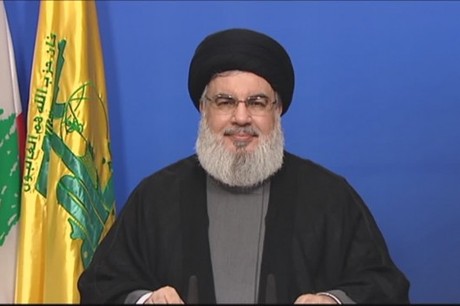
Hassan Nasrallah, the leader of Hezbollah, which is a Muslim group supported by Iran and is powerful in the southern part of Lebanon, giving a televised speech in May in Lebanon (Source: Naharnet)
LEBANON REPORT: INTERVIEW
Lebanon Report Interview, July 2022
“Lebanon will rise again”
Why one young Lebanese doctor believes there is hope for the future of Lebanon. “We stay in Lebanon because we have faith,” says Dr. Georges Cherfane
Beirut, July 8, 2022
By Christopher Hart-Moynihan
Among the unsung heroes of Lebanon today is a young doctor and professor of Physical Therapy in Beirut who, despite all the challenges the country is currently facing, has decided to remain in Lebanon: Dr. Georges Cherfane, 33, a person blessed with seemingly inexhaustible faith, energy, and love for his community.
Among the many challenges the Lebanese people are facing, perhaps the most critical for the country’s future is the crisis in education. At the primary education level, studies have been greatly disrupted over the past several years by Lebanon’s financial crisis and Covid-19. Higher education is increasingly inaccessible for ordinary Lebanese due to the cost, and to compound the problem, many lecturers and professors are leaving the country due to the ongoing uncertainty.
This has prompted a massive wave of emigration — a “brain drain” out of Lebanon — which could compromise the future of the country. Yet many Lebanese still believe that, given the right conditions, this “brain drain” can be completely reversed. (continued below)

Dr. Georges Cherfane, 33, of Beirut, Lebanon, one of those young Lebanese who have made a commitment to stay in Lebanon and help see the country through its present crisis. Below, an interview with Dr. Cherfane, who explains the feelings of young leaders in Lebanon today
What is required is support for the education of students in Lebanon — something we at Unitas: Friends of Lebanon have made a key priority. Many of the students we support come from single-parent families, and many of them lost parents in the Beirut port explosion of August 4, 2020. We rely on the continuing support of donors to keep this project going. Please help support our work here or contact our office to learn more about becoming a “Friend of Lebanon.”
I asked Dr. Cherfane how he views the situation of his country, and why he has made the decision to stay in his homeland. Dr. Cherfane gave me insight into his life’s work and, during our conversation, he told me that, as he put it, “Lebanon will rise again.” —CHM
***
Lebanon Report: Dr. Cherfane, can you tell us a bit about your background and the work you are currently doing?
Dr. Georges Cherfane: I am a doctor in physical therapy. I went to private school, along with my brother and sisters. There are four of us in the family. Then I finished my degrees in government schools, and I continued my studies at Antonine University in Baabda, completing my Bachelor’s degree in physical therapy, and then at Université de St. Joseph, also in Lebanon, for a doctorate. So basically, I am a doctor in physical therapy, and I am a part-time instructor at Antonine University, giving courses related to physiotherapy, biomechanics, sports injuries, specific exercises related to sports injuries. I am a part of the Performance First family. I have a clinic there, a physiotherapy clinic. We treat people, including professional athletes and Olympic athletes. We work directly with Coach Georges Assaf as well as Aya Naimeh. I am also an instructor at Sports Academy School, teaching the last-year students, and I work with many sports teams – a second-division basketball team, a first-division futsal team. I also have private clients, private patients, like elderly people who cannot move. I go to their homes and I try to help them in their houses. Then, when we finish their sessions in their home, they can move again, they can come and go freely. This is a general overview of my life.
LR: Why did you decide to become a physical therapist?
GC: It’s a long story. When I was about 15 years old, my aunt had cancer, and the doctor at that time ordered for her to have physical therapy. She was not able to leave her home, so we were talking with the doctor about what she could do, and he told us that we could move her legs, move her knees, move her hips. So this is the first part of being a physical therapist, helping people to reach their survival ability, their ability to survive and do their normal functions.
The second part of it is that I am a “sports-aholic”, and I was aiming to choose a job that would not separate me from being active. So I choose to help people achieve better health. When people choose “Dr. Georges,” they are offering their body, [saying] “Please take care of my body, I am willing to continue my life in a good way. I am willing to bend my knee, to run, to jump, to take my bath without anyone’s help.”
Physiotherapy is not only a job, it is a life-changer. If I was 2% humble before I became a physical therapist, now I am 1000% humble. You are like a shock absorber. So it is not just a job, it is inside my heart. When I go to a patient, I don’t see him as a [source of] money. I see him, and I treat him, like – I will say it – he is Jesus. I see that he is in pain, I will decrease the pain. If he has a psychological problem, I will treat him to eliminate that problem.
LR: Many doctors have spoken about the current difficulties surrounding their work in Lebanon. Have you experienced any of those challenges in your own work?
GC: As a Lebanese, this is the first plus and minus. Every day, we have challenges to overcome. Being Lebanese is a challenge. As physical therapists, first with the pandemic and then with the financial crisis in Lebanon, everything is hard to maintain. Our relationship with the patients is direct. Our financial continuity, so to speak, comes from the patients. Now, we are experiencing a financial crisis, so I work four or five jobs just to accomplish the [financial] basics. This is very tough. I can tell you that, from my graduating class, there is nobody here in Lebanon. Maybe there are two or three left with me in Lebanon, maybe I am the last one. The rest, 19 or 20 physical therapists that were in my class, are no longer in Lebanon. In terms of funds, we need funds first to help people. Some people have surgeries done and they are not able to pay for their physio sessions [to recover from surgery]. Here, more funds could help them, and not just help me.
Our capacity is not like before. Maybe before we could help people more with fuel, with time, with everything [N.B.: here Dr. Cherfane is referring to paying expenses like gasoline out of his own pocket and giving patients extra time – CHM], but now, everything counts. This is our world. Every minute counts. With the financial situation, every day is a challenge. But we work and we don’t step down; we step forward. We won’t stop. I know that, first of all, we have Jesus in our lives, so we open our eyes, we thank Jesus, and we go and face everything with the Cross in our hands and our hearts. I think this is the main reason why we are still in Lebanon. I am in Lebanon because we have faith in our God, that God is Risen. I think that, in my life, this is the biggest part, and when I fall down, or I feel that I am down, I think: Jesus is not dead, Jesus is Risen. So that’s why Lebanon will rise again. Because we have faith in Lebanon, and we have faith that this situation will pass.
LR: Can you describe Lebanon’s connection to the Christian faith? And how are the relationships between Christians and people of other faiths, such as Muslims and Druze – or even between the many different Christian Churches?
GC: Of course. The greatest title of the Bible is “Love.” This is the greatest word. And for me, the greatest title for my life is “Love and Faith.”
According to the Lebanese people, we have direct access to the heart of Jesus, because we know how to love, and we have faith. So I think we have the two keys to the heart of our Jesus: faith and love. Even with the Muslims, I don’t treat people as Muslim or as Christian, I treat them as brothers and sisters. I am a physical therapist, so I don’t differentiate – I don’t have the right to differentiate – between people. I treat people as brothers and sisters in God. This is my point of view.
In the Bible, Jesus, or the students of Jesus, bring up Lebanon several times in their petitions, so I think Lebanon is the land of God. We are in Lebanon, or we stay in Lebanon, because we have the faith to stay here. I was telling you, Lebanon will rise again, and we have direct access to the heart of Jesus, and of Mary of course, so I think everything is related to the love of Jesus. I think that, indirectly or directly, all Lebanese people that are suffering or [going through] challenges, maybe they are keeping their eyes on the end of the tunnel, and we are seeing Jesus in front of us. I think this is the main idea.
LR: Are you Maronite or a member of another Christian Church?
GC: I am a Maronite.
LR: What is the role of the Maronite Church in Lebanon? Many say that the Maronite Church is the central pillar of Lebanese culture and society…
GC: Actually, I don’t agree 100% with this; I will tell you why. In Lebanon, in the past, our Church had a big role in university studies, and in schools, and in everything related to these two [fields]. Whatever the Lebanese people need, [now] they ask the monks, and they ask the priests, and they ask the Church to fill the place of our government… The role of our government is not [being filled], it’s still “loading”, since 30 years ago.
So our people are asking the Maronite Church to solve these problems, and to be a replacement for the government. I think that our Church is willing to act, and is willing to cover these problems, but I don’t think it can cover all of Lebanon. Maybe it can help 10%, 20%…
A common view of the Maronite Church is that the Church is not working. This is not correct. The Church is working, but it cannot replace the government. This is my point of view.
In the micro-environment, the Church is willing to help. I am Maronite, and I go to Church every Sunday, and I have a dialogue with some of these monks and priests. And I ask them, and this is their answer: they cannot replace the government. They are willing to help, and they are willing to be beside the population, but according to their capacities.
LR: How do you view the recent national elections in Lebanon? Do you see them as a positive step or do you have reservations?
GC: To change a country, you cannot do it with one election. This is true for all countries. According to our Lebanese thinking, this election is a good start, specifically for our teenagers, as well as for our adults. Maybe the majority percentage of [voters in] this election was from older people who are stuck on past problems and past history, with the civil problems, and with these [kinds of] politicians. So this is the main idea.
I think this is a good start, a willingness to change. I think that coming elections should be better and better. To change – and not to eliminate the ideas of anybody – but to change, because after 30 years of problems in Lebanon, I think maybe the Lebanese population needs rest, and needs the minimum of their rights – the minimum.
LR: So you have hope for the next generation…
GC: What I see now is that this generation, the future generation, is willing to change our Lebanon. Hopefully for the positive – hopefully.
LR: And that’s where education comes in. As we know, education is so important, and in Lebanon, education has been interrupted. Funding has been interrupted, school has been interrupted. What is the situation of the university where you are teaching, Antonine University?
GC: I want to add, between brackets: in the past, politicians eliminated these studies, and eliminated the normal capacity of the population to study. Why? In order to have them be blind, and to have them not change.
So, the first step to change is the willingness to study, and the willingness to know better, and to know the correct issues. To see everything, we need to be educated.
Antonine University is a university that has been going step-by-step through this crisis. They are holding the hands of their students. Really.
With the crisis of the dollar, Antonine University is one of the universities – I don’t say that it is the last one, or the only one – that are thinking for their students, and not for themselves. They are beside their students, believe me. The dollar is now at approximately 28,000 or 30,000 Lebanese pounds per dollar, and they are still accepting 2,700, and not 30,000.
LR: So these are some of the challenges that you are seeing in education in Lebanon. What are some things that could improve the potential of the next generation to succeed? How can people help these students get the education that they need to keep building their future?
GC: This is the big question, and we are asking ourselves the same question: how we can help these students continue their education. Even in the faculty of Sports Science, the faculty that I teach courses in, approximately 80-85% of these students work. Even if we are keeping these low [tuition fees] as a university, even with these low costs, they are not able to cover it.
Let’s say I’m a student, and I cannot cover all of my home [bills]. I would think that I should rather pay my electricity bill, and pay my food bill, and pay my fuel bill, and not go to study. I would go eat, and I would not study, because I would not think that my financial [resources] are ready to cover this. I would choose Option 1: to eat, and not Option 2: to study.
LR: Do you think that Lebanon will immediately thrive if there is more financial support, or do many things need to be rebuilt from scratch?
GC: Not from scratch. We have the talent. We have the will to succeed. We have educational infrastructure, but maybe it will not [be maintained] because of this financial crisis. We have the infrastructure for the schools, but nobody can go to school. We have the infrastructure for education, but no-one can continue their education. Part of it will be from scratch, but on the other hand, there is a part we can continue, maybe from 50%.
LR: Obviously many people are leaving Lebanon, and building their careers and lives in other countries. Do you think that there is a chance that those people will come back eventually?
GC: In terms of my friends and family, a high percentage of the people who have moved away are willing to come back to Lebanon once the crisis is over. They are aiming to go and to pass these two, three, four years – hopefully just one year – and then they will come back to Lebanon. Because their parents are here, their friends are here, their homes are here. Everything’s here. They are not selling everything [in order] to go out [of Lebanon]. They are going out just for survival, and they are sending money to their parents, and to their families here, just to survive. Maybe they are willing to go, and to lose these two, three years to [help] their parents in Lebanon, and their children in Lebanon, to succeed and survive.
For example, a person might decide to go outside Lebanon, [in order] to send money here, just to continue [paying] their home bills, or their electrical bills, or for their parents to survive here in Lebanon. Because they are not aiming to take them outside [Lebanon].
Our home is Lebanon. I am not willing to quit Lebanon, or to survive somewhere else. We are willing to grow here, not to grow outside of Lebanon. This is my point of view. I am talking about my experience. This is how I think, and this is why, after three or four years of this crisis, I am willing to stay in Lebanon.
Hopefully, I hope that my friends will come back. I hope that I will see them working beside me. Even my brother, my best friends. This is hard for us, of course, but we know that they are doing what they think is best in this situation. We have many examples of this, but we are hoping that everyone will come back, and the situation will get better and better.
My brother is in Belgium now, with his family. The last few months he was in Lebanon, he was – like many people in Lebanon – always searching for milk for his one-year-old baby. He was searching all night in the pharmacies, up and down. Then we would go search for fuel, because we don’t have fuel, so we would switch from his car to my car and keep searching for milk. You could see in his eyes that he wanted to cry, but we were beside him. Thank God that we found one [packet], and we gave it to her.
But this is not the story. The story is that the Lebanese people deserve more than this. Believe me. This is one of the stories that pushed my brother to go to Belgium. He had work, he had his home, cars, assets in Lebanon, but he couldn’t be sure that his girls would not pass through these circumstances again.
LR: It’s said that Jesus was in Lebanon during his life, in Tyre and Sidon. And possibly his first miracle, changing the water into wine, was also in Lebanon, although this is not certain. That would have been in southern Lebanon, a region that has been a war zone. So the land where Jesus walked is now a land in need of a miracle…
GC: Of course, we are waiting for a miracle, for sure. But, as I was telling you, we have the faith that Lebanon is the land of God, believe me.
LR: I appreciate you taking the time to talk with us. You are doing really great work…
GC: Thank you, and thank you to everyone who is helping us in Lebanon, and everyone who is listening to our problems. As much as they are helping us with their funds, maybe they can also help with their prayers. Even if we are separated [physically], being together is really this feeling of blessing that we have together. So thank you for everything.
[End, interview with Dr. Georges Cherfane]
Please consider becoming a “Friend of Lebanon,” and help us to bring “short-term help” and “long-term hope” to the land where Jesus Christ walked and performed miracles.
As a “Friend of Lebanon,” you will be able to participate in our Zoom calls with the people we are working with in Rome, Beirut, and throughout Lebanon to support Christians in their ancient homeland.
Please consider joining us.
Christopher Hart-Moynihan
Director of Programs
Urbi et Orbi Communications
